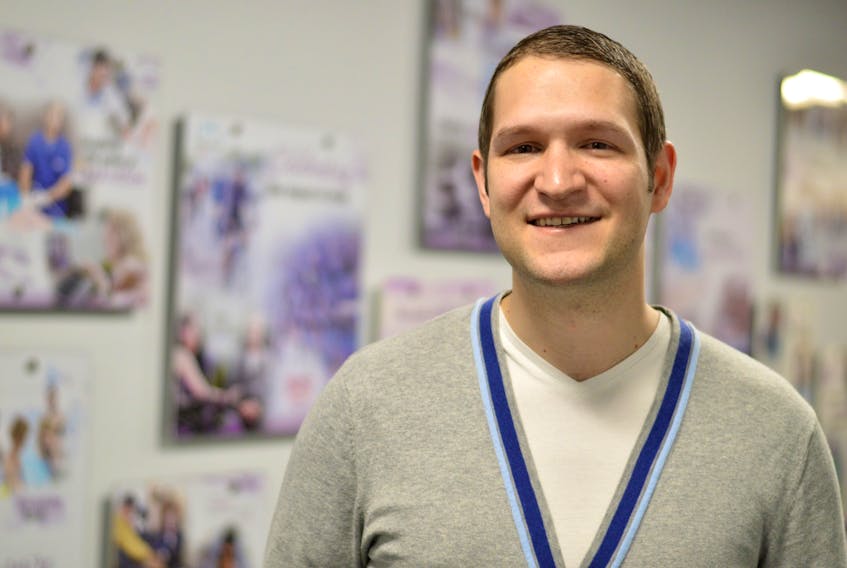NOAH EPSTEIN
I remember vividly what it felt like when I first became ill with psychosis in my early 20s.
I didn’t have hallucinations; it was more like hearing in italics when people spoke. Certain phrases would be emphasized, which made me incredibly paranoid of those close to me and society, in general.
Isolated in my apartment, doubting those around me, I was stuck in this altered state that became very severe, very rapidly. I was fortunate to have a place to turn when I needed help. I was hospitalized and then attended the Nova Scotia Early Psychosis Program (NSEPP), a leading clinic for early-phase research and treatment of the illness, located at the QEII Health Sciences Centre.
What started as an acute situation requiring intensive care eventually deflated into something that, 10 years later, barely affects me. Thanks to health-care research, my treatment has evolved from requiring oral medications several times a day to a new, easy injection that requires only a five-minute appointment every three months. For me, this made maintaining positive mental health much easier.
Researchers and health-care teams at leading health centres like the QEII really do have patients’ best interests at heart. We are all human and there may be imperfections, setbacks and flaws in our care, but I’m absolutely certain more advances in state-of-the-art health care will continue in the immediate future.
I think some of people’s frustrations with health care come, understandably, from the frustration with illness itself, along with a popular stereotype that medicine and doctors should have all the answers and perfect methods.
I don’t share those concerns. In fact, my care team was so open-minded and considerate with me that after receiving treatment, I went from patient to staff. The clinic hired me as a peer support worker and research assistant. This is a case where life’s challenges can be assets. Knowing what mental illness feels like gives you wisdom from your lived experience. That’s what my peer support role is all about — being a wounded healer, like a comedian who struggles backstage with depression. I offer social and emotional support to my peers who are living with mental health difficulties. With the help of the QEII and NSEPP, I was able to turn my crisis into an opportunity to help others. I’m thrilled to be able to help with the clinic’s research while also supporting patients directly, one on one. I applaud the clinical staff of the QEII and NSEPP for not giving up on me in those difficult first years.
They had the “audacity of hope” — to borrow from Barack Obama — to fight for my wellness and then go even further: hiring me on their team when I became ready.









